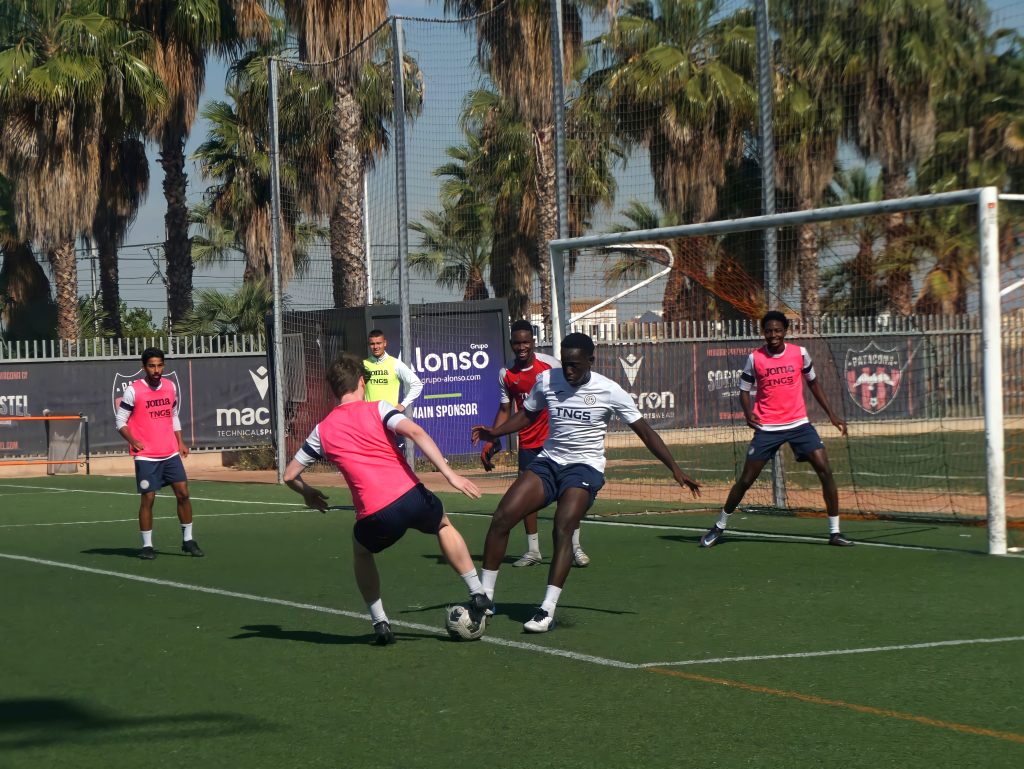Football is a sport that requires physical and technical skills, but in the pursuit of being a high performance player, mental preparation is of necessary importance. Indeed, when one thinks of high-performance footballers such as Lionel Messi or Cristiano Ronaldo, the first thing that may come to mind is their physical prowess, but what often goes unnoticed is their mental fortitude. Football performance depends not only on physical skills, but also on cognitive abilities such as concentration, decision-making under pressure and emotional regulation. In this sense, mental preparation has become an integral part of football players’ training, enabling them to reach a level of excellence and optimal performance at the highest level of football.
Here are some important aspects of building mental preparation in football.
- Training with a focus on psychological preparation
Psychological preparation in football training can help you to significantly improve your mental toughness as a player, as well as your overall performance. This implies that traditional physical training alone may not be enough for you to achieve optimal results in the field. Therefore, you should perform specific mental exercises during your training sessions, such as training that develops your concentration or communication skills.
- Focus on developing emotional intelligence
We begin by defining emotional intelligence as the ability to recognise your emotions and those of other people in order to learn to master them and manage them appropriately in any type of situation. In relation to football, having emotional intelligence implies perceiving your emotions accurately, understanding their impact on your behaviour and decision-making processes; therefore, when you find yourself in moments of tension and stress during a football match such as penalty kicks, you must manage your emotions and impulses efficiently in order to manage and control the situation. You can perform a number of techniques such as taking time to reflect before you play, which will help you to stay present in reality in high-pressure situations.
In addition, emotional intelligence includes communicating with your environment, understanding that words can affect the mood of your peers and others. In other words, good communication can greatly enhance your performance as a player, improve your interpersonal relationships within teams/organisations, and achieve collective goals efficiently and successfully. Remember that when each player understands his or her role within the team dynamic and how he or she can best contribute to success by building on his or her strengths as an individual while working with the weaknesses of others, everyone benefits.
- Building resilience
Resilience is the ability to cope with difficult and adverse situations. In football, resilience is essential for footballers to overcome adversity and maintain success in a highly competitive sport. Professional footballers who have accumulated great success in their career have been able to be resilient in order to cope with setbacks and challenges, as resilience allows them to be players with positive attitudes towards obstacles while remaining focused on their goals. If you want to develop high levels of resilience you must train for both physical fitness and psychological strength, through training programmes specifically designed to develop resilience alongside your mental toughness.
Furthermore, different professions specialised in sport psychology indicate that being resilient is essential for dealing with physical injuries, as it enables them to recover and perform at their best. However, it should be emphasised that resilience does not disappear or contract situations of setbacks or pain; rather, it enables injured footballers to withstand difficulties when they arise. For example, if a player suffers an ankle injury, the initial shock of not being able to play could trigger frustration and disappointment. However, if the player manages his mental toughness properly and follows his rehabilitation exercises properly, the player will be able to recover effectively and even increase his chances of returning much stronger than before.
Therefore, developing strong psychological skills can help you as a player to overcome obstacles and maintain your concentration in difficult situations, such as injury or pressure from the opposition. To do this, you must incorporate practices into your training that allow you to strengthen your mental and psychological skills. Also, you must focus on learning to recognise and manage your emotions, both your own and those of others, so that you maintain your composure in matches that require your full concentration and skill. Also, practising mental toughness will allow you to cope with difficult situations, resulting in a positive attitude towards the situation. That way, you will continue to grow and develop into a successful professional football player.



